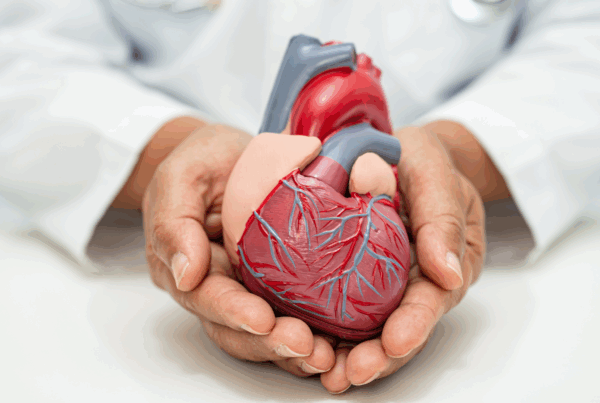Not many people are aware of the fact that snoring is often a sign of a condition called obstructive sleep apnoea, which increases the risk for diabetes, obesity, hypertension, stroke, heart attack and other cardiovascular problems.
For those suffering from sleep apnoea, the airway becomes blocked, or the muscles that control breathing stop moving as they should. When this happens, this can lead to sudden drop in blood oxygen levels, increased blood pressure and a strain on the overall cardiovascular system.
In some cases, people can suffer from this sudden stop and then restart of breathing hundreds of times throughout the night. Also, those suffering from sleep apnoea often deal with poor sleep quality overall and may still feel tired about a “full” night’s sleep, which can lead to higher stress levels and lack of recovery time needed to maintain a healthy heart.
What is Sleep Apnoea?
Characterized by a constant stopping and starting of sleep, sleep apnoea is a potentially serious sleep disorder. People suffering from this may tend to snore loudly and feel tired after sleep.
This is partially because it becomes difficult to keep the airways open and when closed, breathing will stop, causing a sleeper to wake suddenly, gasping for air.
Sleep apnoea can also be referred to as obstructive sleep apnoea (OSA), central sleep apnoea, and complex sleep apnoea, which signify different effects on the body, from the relaxation of muscles to brain signals not being transmitted properly to the muscles that control breathing.
How Does Sleep Apnoea Affect Cardiovascular Health?
Sleep apnoea can influence the body in several ways, affecting the body and overall cardiovascular system:
- When your sleep is disrupted and you wake up at night gasping for air, your body will release cortisol (the stress hormone), which can lead to heart disease and high blood pressure in some cases.
- The sleep deprivation that sleep apnoea causes can lead to obesity and health conditions related to it.
- Your body may respond to a low level of oxygen entering the body by constricting blood vessels and increasing heart rate and blood pressure.
- Lack of consistent sleep and constant change in your blood pressure can lead to hypertension or potentially exacerbate the seriousness of existing hypertension.
- Trying to breathe in air suddenly when your air passageways are closed or restricted can cause significant changes in air pressure within the chest cavity, which could potentially damage the heart.
- Regular changes in oxygen levels can increase oxidative stress, which can increase inflammation and the risk of heart disease.
Sleep Deprivation and Heart Disease
Sleep is a crucial part of recovery and supporting your body’s natural processes. Therefore, insufficient or fragmented sleep can negatively affect the body and heart in several ways. For instance, your heart rate and blood pressure should drop during sleep, but with sleep apnoea, you’re not giving the heart and cardiovascular system the time it needs to recover.
Seeking Professional Medical Advice
To diagnose whether you have sleep apnoea or not, and the specific type of condition you might have, it is advised to contact a doctor.
Given the significant health consequences of untreated sleep apnoea and other sleep disorders, reaching out to a professional can help you to find sustainable solutions that reduce the risk of various heart conditions and improve overall health.
Symptoms of sleep apnoea can vary, but if you are suffering from the following, it is worth investigating further.
- Loud snoring and the sudden awakening and gasping for breath
- Noticeable pauses in breathing during sleep
Treating Sleep Apnoea for Better Heart Health
If you’re diagnosed with sleep apnoea, a number of methods might be recommended to reduce its impact on your sleep and heart health. Treatment will largely depend on the type of sleep apnoea you suffer from, but can include lifestyle changes such as reduction of certain foods and alcohol, increased exercise, weight loss and a change of sleeping position.
Also, certain devices could be used to increase the flow of air through your airways. For instance, airway pressure devices can stop your upper airway from closing.
Some doctors may also advise on certain exercises for the mouth that can help to strengthen muscles and prevent sleep apnoea from interfering with your sleep.
Concerned About Sleep Apnoea and Heart Health?
If you’re concerned about how sleep apnoea might be affecting your heart health, it is worth contacting a professional for advice. Certain tests might also be able to help determine the condition of your heart and establish a plan for improving the heart and cardiovascular health. If you’re searching for advice on heart health, or cardiology tests near you, get in touch with us at Venturi Cardiology.












